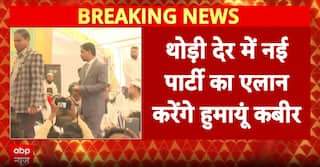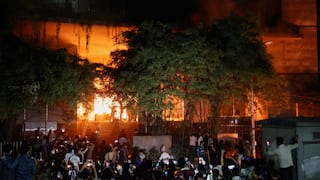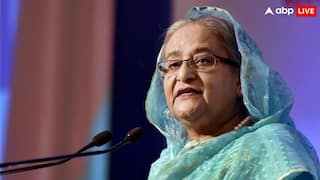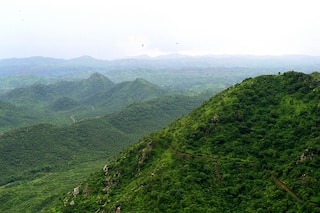CPEC resulting in vulnerable ecological consequences, warns environmentalist

London [UK], Dec 17 (ANI): The exploitation of resources due to the multi-billion dollar China Pakistan Economic Corridor (CPEC) project is resulting in vulnerable ecological consequences, an environmentalist has warned.
Talking about the environmental and ecological impact of CPEC at a panel discussion held at the Royal Asiatic Society in London, Dr Troy Sternberg, an environmentalist from the Oxford University, said the landscape, where the construction of the CPEC is proposed, will be one of the main challenges for the Chinese multi-billion dollar project as one has to deal with physical limitations.
The panel discussion was organised by the European Foundation for South Asian Studies (EFSAS), a global leading independent, EU accredited think tank, based in Amsterdam, on Friday, consisting of reputable scholars affiliated with various academic institutions including Oxford University, Birmingham University and SOAS University of London, deliberated upon the legal, economic, environmental and geo-political impacts of the construction of the China Pakistan Economic Corridor.
Dr Sternberg, a research fellow in the School of Geography at the University of Oxford, Dr Filippo Boni of the Department of Political Science and International Studies at the University of Birmingham, Dr Shabir Choudhry, Chairman South Asia Watch, Burzine Waghmar, Senior Teaching Fellow at the London's School of Oriental and African Studies (SOAS) and affiliated with the Centre for the Study of Pakistan, Centre for Iranian Studies, SOAS South Asia Institute and London Middle East Institute, and Junaid Qureshi, Director of the European Foundation for South Asian Studies (EFSAS) were a part of the panel which critically examined the question whether CPEC would prove to be a diplomatic debt-trap or economic game-changer for South Asia.
Dr Sternberg further explained that the exploitation of water and other resources in the region, resulting in vulnerable ecological consequences and adverse contributions towards climate-change, cannot justify CPEC's possible projected economic monetary benefits.
He also questioned Chinese and Pakistani understanding of the law of gravity as the CPEC was also meant to facilitate the transport of goods uphill conquering mountains of several thousand feet, and stressed that transportation to Gwadar will be easy while transportation to Kashgar would certainly bring physical challenges which neither the Chinese nor the Pakistanis seem to have considered.
Dr Shabir Choudhry, in his speech, said the CPEC, besides its economic aspect, has salient parts which are hidden and will have great geo-political and strategic significance and which could be interpreted as having a strong imperialist agenda.
He stated further that Pakistan's ruling elite has a long history of taking dictations from powerful allies.
After the US, Britain, Saudi Arabia and the United Arab Emirates (UAE), which have many times influenced Pakistan's domestic and foreign policies, this role, to a large extent, has been taken over by China.
Discussing the economic angle of the CPEC, Dr Filippo Boni said the early-harvest projects had proven to work, but that there was also certainly a transparency concern in the long run.
Junaid Qureshi, in his speech, examined the legal aspects of CPEC, particularly in relation to the disputed territory of Gilgit Baltistan, and Jammu and Kashmir.
While explaining the contradictions of subsequent Pakistani Government's actions in relation to the State's own Constitutional provision (Article 257 of Pakistan's Constitution) pertaining to the disputed State of Jammu and Kashmir, Qureshi said, that according to the constitution, the 'relationship' between the people of Pakistan and of Jammu and Kashmir was not yet, final, and was going to be decided in the light of a possible accession.
He added that this, legally, established the fact that the disputed areas of Jammu and Kashmir, currently under administration of Pakistan, were not legally part of Pakistan.
He ended by saying that the construction of CPEC, complimented by the military benefits for both China and Pakistan and an investment of 50 billion dollars, had all the ingredients to exacerbate the complexities of the Jammu and Kashmir-Issue, threaten peace and secure China's strategic interests by allowing it, after the Shaksgam Valley and the Aksai Chin plateau, to increase its illegitimate share in the state of Jammu and Kashmir.
The panel discussion was followed by a question and answer discussion, in which students from various reputable universities, human rights activists, scholars and academicians, political bodies, CPEC experts, journalists, Chinese and Pakistani nationals and voices of the large South Asian Diaspora in the UK took part.
It was agreed that besides the fact that the CPEC should be revisited in view of its illegalities pertaining to the disputed territory of Gilgit-Baltistan, it also required urgent transparency in order to make this project accountable to the people of Pakistan.
The China-Pakistan Economic Corridor (CPEC), a crucial component of Beijing much-hyped One Belt, One Road (OBOR) initiative, remains a hot topic internationally.
The collection of infrastructure projects that are currently under construction throughout Pakistan, is an undertaking that has been advertised as a tale of success and the ultimate example of how two countries could prosperously collaborate.
However, after the initial euphoria, clear evidences provide for the reality that such a politically-charged economic project is also a ground for brewing trouble.
In addition, a significant portion of the corridor will pass through Gilgit-Baltistan, part of the disputed territory of Jammu and Kashmir between India and Pakistan, which further raises questions on its legality. (ANI)
This story has not been edited. It has been published as provided by ANI





























